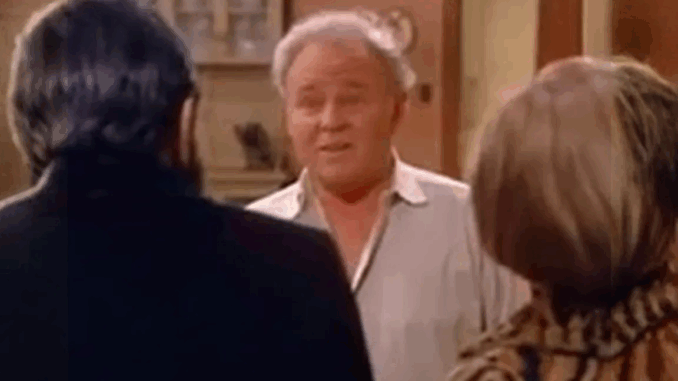
In Lionel Steps Out, tensions rise when Archie discovers Lionel is dating a white woman. This powerful episode of All in the Family explores race, relationships, and generational bias with honesty and humor.
Lionel Steps Out – Love, Race, and Archie’s Prejudice Collide in Classic All in the Family Fashion
Few shows in television history have tackled race and social issues with as much honesty and humor as All in the Family. In the unforgettable episode “Lionel Steps Out,” the show once again dives into complex themes of race, love, and generational prejudice—this time through the lens of interracial dating.
The Plot: Lionel’s Relationship Sparks Controversy
The episode kicks off when Archie Bunker learns that Lionel Jefferson, the young and intelligent Black neighbor he’s known for years, is dating a white woman. True to form, Archie reacts with shock, disapproval, and plenty of offensive assumptions—exposing his deeply rooted biases.
Archie’s reaction sets off a series of conversations and confrontations that challenge not only his views, but also force other characters to confront their own beliefs about race, love, and identity.
Why It Matters
-
✅ Tackles interracial relationships head-on in a time when TV rarely did
-
✅ Reveals the contrast between older and younger generations
-
✅ Highlights Lionel’s independence and dignity in the face of bigotry
-
✅ Uses comedy to challenge viewers’ own perceptions and prejudices
Lionel Stands His Ground
One of the most powerful aspects of this episode is how Lionel maintains his composure, pride, and confidence in the face of Archie’s ignorance. His calm, reasoned responses reveal not only his intelligence but also the strength it takes to rise above discrimination with dignity.
The episode positions Lionel not as a side character or a stereotype, but as a man in control of his own identity, unafraid to make his own choices—especially when it comes to love.
Archie’s Biases on Full Display
As always, Archie Bunker serves as the mirror through which American society sees its own flaws. His discomfort with Lionel’s relationship reveals longstanding racial prejudices, even when he believes he means well. Yet the show never excuses his views—it uses them as a vehicle for critical reflection, satire, and, ultimately, growth.
A Timeless Conversation
Though it originally aired in the 1970s, Lionel Steps Out remains incredibly relevant in today’s discussions around race, acceptance, and cultural progress. It reminds us that while society has come a long way, the work of understanding and respecting each other’s differences continues.